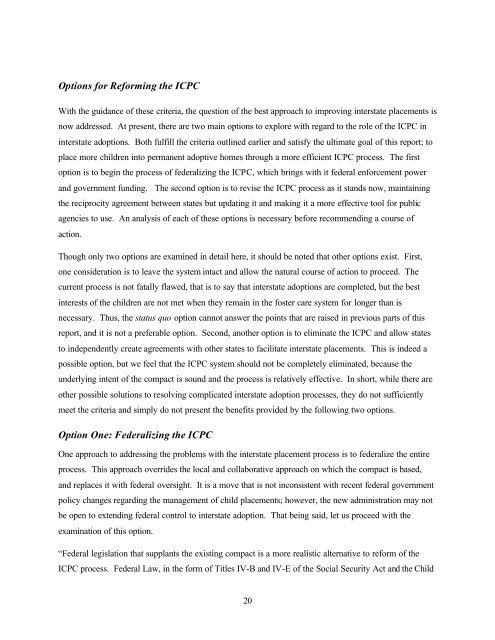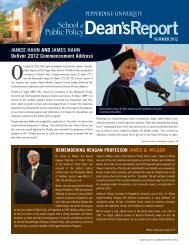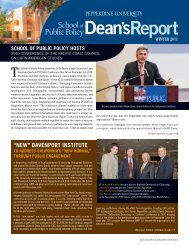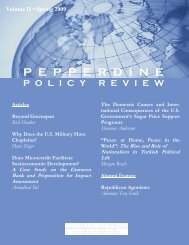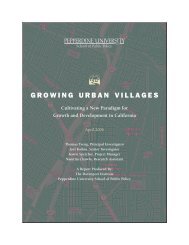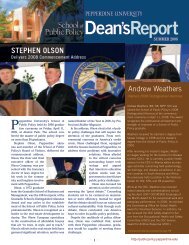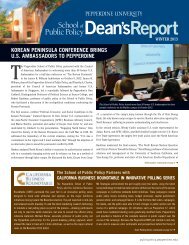Finding Permanent Homes for Adoptable Children - Pepperdine ...
Finding Permanent Homes for Adoptable Children - Pepperdine ...
Finding Permanent Homes for Adoptable Children - Pepperdine ...
You also want an ePaper? Increase the reach of your titles
YUMPU automatically turns print PDFs into web optimized ePapers that Google loves.
Options <strong>for</strong> Re<strong>for</strong>ming the ICPC<br />
With the guidance of these criteria, the question of the best approach to improving interstate placements is<br />
now addressed. At present, there are two main options to explore with regard to the role of the ICPC in<br />
interstate adoptions. Both fulfill the criteria outlined earlier and satisfy the ultimate goal of this report; to<br />
place more children into permanent adoptive homes through a more efficient ICPC process. The first<br />
option is to begin the process of federalizing the ICPC, which brings with it federal en<strong>for</strong>cement power<br />
and government funding. The second option is to revise the ICPC process as it stands now, maintaining<br />
the reciprocity agreement between states but updating it and making it a more effective tool <strong>for</strong> public<br />
agencies to use. An analysis of each of these options is necessary be<strong>for</strong>e recommending a course of<br />
action.<br />
Though only two options are examined in detail here, it should be noted that other options exist. First,<br />
one consideration is to leave the system intact and allow the natural course of action to proceed. The<br />
current process is not fatally flawed, that is to say that interstate adoptions are completed, but the best<br />
interests of the children are not met when they remain in the foster care system <strong>for</strong> longer than is<br />
necessary. Thus, the status quo option cannot answer the points that are raised in previous parts of this<br />
report, and it is not a preferable option. Second, another option is to eliminate the ICPC and allow states<br />
to independently create agreements with other states to facilitate interstate placements. This is indeed a<br />
possible option, but we feel that the ICPC system should not be completely eliminated, because the<br />
underlying intent of the compact is sound and the process is relatively effective. In short, while there are<br />
other possible solutions to resolving complicated interstate adoption processes, they do not sufficiently<br />
meet the criteria and simply do not present the benefits provided by the following two options.<br />
Option One: Federalizing the ICPC<br />
One approach to addressing the problems with the interstate placement process is to federalize the entire<br />
process. This approach overrides the local and collaborative approach on which the compact is based,<br />
and replaces it with federal oversight. It is a move that is not inconsistent with recent federal government<br />
policy changes regarding the management of child placements; however, the new administration may not<br />
be open to extending federal control to interstate adoption. That being said, let us proceed with the<br />
examination of this option.<br />
“Federal legislation that supplants the existing compact is a more realistic alternative to re<strong>for</strong>m of the<br />
ICPC process. Federal Law, in the <strong>for</strong>m of Titles IV-B and IV-E of the Social Security Act and the Child<br />
20


